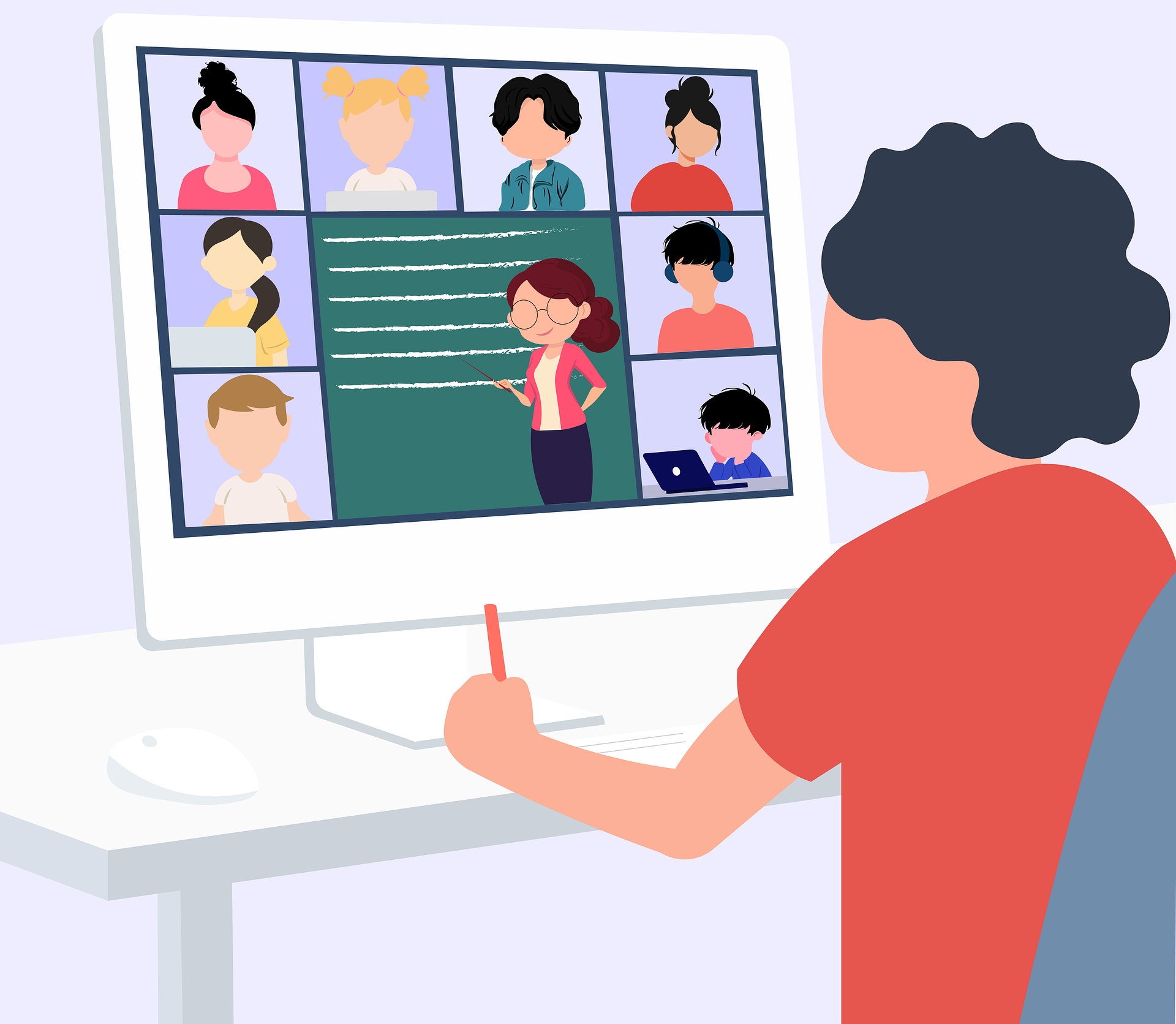Extroverted Students Flourish, Introverted Students Struggle as Remote Education Continues
While many believe that remote education is more beneficial for introverts than extroverts because of less social interaction, we have learned it is quite the opposite.
It is true introverts energize through alone time, which remote time allows more of, while extroverts refresh through time spent with others. But virtual learning poses other challenges. Because extroverts and introverts have different characteristics and we live in an extroverts’ world, introverts are more susceptible to anxiety.
Source: Pixabay
In addition, the changing environment and unknown circumstances of learning at home is more likely to provoke this anxiety, making introverted students less motivated to learn and participate. The susceptibility to depression introverts endure may also lead them to have trouble discovering consistent sources of positive and optimistic emotions within themselves, leading to a more stressful experience when learning online.
Extroverts’ characteristics ultimately give them an advantage in online education because they can better form relationships with professors. According to a Greater Divide study, more extroverted adults are less likely to be experiencing mental health issues as a result of quarantine. This allows them to use their energy towards connecting in the virtual classroom, whereas an introvert may need to recharge after every class.
Extroversion is typically associated with positive emotions, which is needed for productivity. Because introverts may face less positivity due to the impact of the pandemic on their mental health, they may be less productive. In an article published by Patch, it made a comparison of introverted and extroverted traits. “The uncertainty of this pandemic may be more difficult for introverts,” the article stated. “Some experts contribute the surprising results to extroversion being associated with more positive emotions, optimism and resilience, while introversion has been linked to more nervousness and fear.”
Another significant reason for the difference in online learning is how introverts and extroverts generally cope with stress. Introverts are more likely to utilize passive coping methods, including avoidance, while extroverts are more likely to utilize active coping methods. By harboring stress, introverts can experience declining mental health that affects their ability to successfully learn in a remote environment. In contrast, healthy stress management can positively impact one's mental and emotional function when working remotely. To cope with negative emotions, a student must feel motivated and mentally capable.
All students, especially introverts, are struggling from online learning more than educators initially anticipated. To combat this, we must provide strategies conducive to the differing learning styles of introverts and extroverts. For example, Best Schools suggests we can offer more asynchronous classes, which introverts tend to thrive in because of the opportunity for personal reflection through rewatching lectures or going over notes. For synchronous classes, we could prepare materials for introverts to go over prior to the start of class. For group projects, we could make smaller groups and utilize breakout rooms over Zoom rather than having large class discussions. While extroverts tend to be flourishing with remote learning because of their skillset, it doesn’t mean we can’t improve the experience for introverts and strive for a more inclusive online education.
